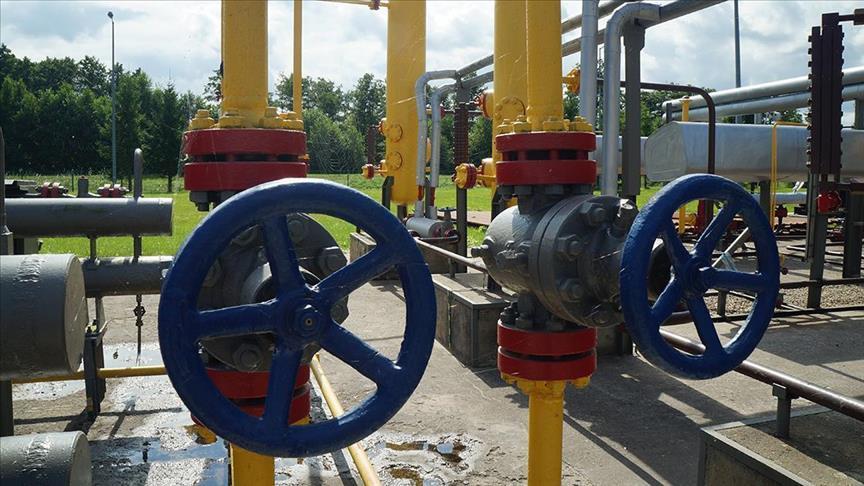Eastern Mediterranean natural gas resources could only substitute 20% of the EU's Russian gas imports at most if LNG facilities in Egypt work at full capacity and the proposed Turkiye-Israel pipeline is realized, according to Sohbet Karbuz, director of Hydrocarbons at the Mediterranean Observatory for Energy (OME).
Karbuz said in an exclusive interview with Anadolu Agency that the only gas resources in the Eastern Mediterranean operational for exports are via two LNG facilities located in Egypt.
These facilities broke a ten-year export record last year with a cumulative capacity of 19 billion cubic meters (bcm).
If Israeli gas is brought into the equation over the next three to five years, Karbuz said Egypt could reach its full export capacity but this would only cover a 12% share of the EU’s demand.
Furthermore, he argued that only an additional 10 bcm of gas could be exported under a best-case scenario from the Eastern Mediterranean in the next five to 10 years.
With the EU target to cut two-thirds of its 155 bcm of annual Russian gas imports by the year-end and cutting all by 2027, he said it would be difficult to acquire replacement gas.
"This year's LNG imports from Egypt are projected to remain the same, and even if all these LNG cargoes are sent to Europe, this amount only equals 6% of the EU's total gas imports from Russia," he warned.
Assuming the proposed Turkiye-Israel pipeline is realized, he said it could only help the EU substitute only 20% of its Russian gas imports.
“In short, Eastern Mediterranean gas cannot be an alternative to Russian gas. It only has a limited potential to substitute it," he said.
Regarding the feasibility of Israeli gas resources to Europe, Karbuz said the decision on the form of transport to use would be a determining factor, which would be decided by the partners and operators of the Leviathan gas field and not by the government or politicians.
These options would include LNG, pipeline, or other hybrid solutions, with Chevron, as the operator, making the choice.
He suggested the most important reason for the withdrawal of US support from the EastMed pipeline project was the difficulty in reaching an agreement between the sellers and the buyers.
Greece, Israel, and the Greek Cypriot administration inked an agreement in 2020 to build a 1,900-kilometer-long (approximately 1,200-mile-long) natural gas pipeline in the Eastern Mediterranean, known as the EastMed pipeline project, to connect Israel, the Greek Cypriot administration, Crete, Greece, and ultimately Italy.
The US on Jan. 11 formally withdrew its support for the proposed plan. The US embassy in Athens said the Biden administration is "shifting our focus to electricity interconnectors that can support both gas and renewable energy sources."
"The Turkiye-Israel pipeline again has become a current issue with recent steps taken to normalize relations between the two countries. Nevertheless, when evaluating the recent optimism in relations, commercial and political aspects also need to be taken into consideration," Karbuz said.
He contended that there is no problem commercially for buyers given that Turkiye is one of the biggest gas markets in Europe, although he warned that the Cyprus issue needs to be resolved if a pipeline is to be built from the Leviathan field to Turkiye.
"Provided these commercial and political obstacles are cleared, then an investment process for a second-phase development of the Leviathan field can start. In any case, it would be unrealistic to give a deadline before 2025 for the realization of this project," he concluded.
The first high-level meeting between Israel and Turkiye in a decade took place in Ankara on March 9. During Israeli President Isaac Herzog’s meeting with Turkish President Recep Tayyip Erdogan, both presidents expressed the aim to revive bilateral relations based on common interests, and they also availed of the opportunity to discuss enhancing energy cooperation.
The possibility of exporting Israeli gas to Europe via Turkiye was among the key issues that advanced the short-lived Israel-Turkiye reconciliation in 2016.
By Ebru Sengul Cevrioglu
Anadolu Agency
energy@aa.com.tr


